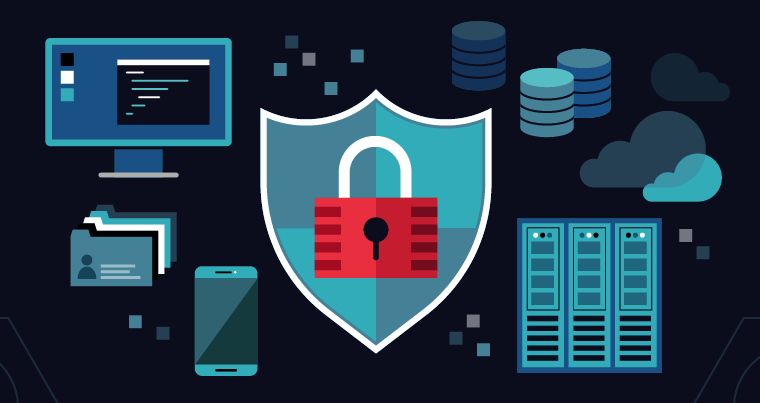
Treetop Cloud has an expert team to work for endpoint security. Basically, endpoint security refers to securing endpoints, or end-user devices like desktops, laptops, and mobile devices.
Why Is Endpoint Security Important?
Protecting all endpoints
Securing remote working
Sophisticated threat protection
Protecting identity
Significant differences between endpoint protection and antivirus software:
Device coverage: Traditional antivirus programs are designed to protect one single device, such as the antivirus programs placed onto laptops to keep them secure. Endpoint security solutions, on the other hand, look to protect all of the connected devices across an entire enterprise network.
Protection from threats: Antivirus solutions protect businesses from malware that is included within the businesses’ database of known threats. But sophisticated threats typically do not feature a traditional signature, which could leave businesses vulnerable. Endpoint security solutions take a more holistic view that protects businesses from threats such as data loss, fileless and signatureless malware, and phishing attacks in addition to known risks.
Continuous protection: Antivirus solutions use a signature-based detection process to discover and protect businesses from potential risks. This means if a user has not updated their antivirus program, then they could still be at risk. In contrast, endpoint security solutions connect to the cloud and update automatically, ensuring users always have the latest version available.
Advanced internal protection: Traditional antivirus programs can block malware, but they do not prevent employees from putting sensitive data on a USB drive and stealing it from the organization. Endpoint solutions offer greater protection from threats like data loss and data leakage through technologies like data encryption and data access controls. This ensures unauthorized employees cannot get hold of data beyond their access rights and steal or sell it. Endpoint security also utilizes advanced technologies such as behavioral analysis that enable businesses to detect threats based on suspicious behavior from external and internal sources.
Admin control: Antivirus solutions relied on users manually updating the software in order to keep it in line with new malware risks. But endpoint solutions provide interconnected security that moves the admin responsibility to the IT or security team. This removes the risk of human error putting end-users’ devices at risk.
Enterprise-wide control: Traditional antivirus solutions typically only notify a user when a threat is detected. The risk will then need to be analyzed and investigated in person by a security professional. But endpoint security solutions provide a centralized portal that enables admins to monitor activity, install, configure, patch, and update software, investigate any suspicious traffic, and resolve issues remotely. It also enables admins to carry out these actions to multiple endpoints at the same time, which speeds up issue resolution for employees and saves IT and security teams huge amounts of time.
Integration: An antivirus solution operates as a single program that performs a specific function. But an endpoint security approach offers the important advantage of integration, whereby various solutions are included within a suite that can be easily integrated for more comprehensive security protection.
Common devices that can be considered an endpoint include:
ATM machines
IoT-enabled smart devices
Industrial machines
Laptop computers
Medical devices
Mobile phones
Printers
Servers
Tablets
Wearables, such as smartwatches
Benefits of endpoint security:
Raise awareness among end users: Endpoint protection measures collect information about known and emerging security incidents and raise organization-wide awareness about them. Users get the latest intelligence to secure their devices.
Reduce response time: Endpoint security solutions monitor user behavior and flag any unusual activity automatically. You can detect and respond to security incidents much faster.
Support regulatory compliance: Endpoint security can contribute to your overall compliance goals. For example, you can use measures such as data encryption, continuous monitoring, and timely alerts to reduce the risk of inadvertent access to sensitive data.
Endpoint Protection Features:
Anti-Malware: Endpoint protection solutions should detect and prevent infections by viruses, worms, and other malware.
Behavioral Analytics: Ransomware and other malware variants have unique behaviors that make them detectable without the use of signatures. By monitoring these behaviors, endpoint protection solutions can detect and respond to zero-day attacks.
Compliance: The ability to enforce compliance with enterprise security policies is increasingly important with the growth of remote work and BYOD. Endpoint solutions should evaluate devices and only allow connections to the corporate network if they are compliant with corporate policy.
Data Encryption: Encryption is the most effective way to protect data against unauthorized access and potential breach. Endpoint security solutions should offer full disk encryption (FDE) and support encryption of removable media.
Firewall and Application Control: Network Segmentations essential for managing access and cybersecurity risk. Firewall and application control functionality enables network segmentation and blocking of traffic based on security policy and application-specific rules.
Sandbox Inspection: Endpoints can be infected with malware via various means such as phishing, vulnerability exploitation, and more. Endpoint Security Solutions should extract and inspect files in a sandboxed environment to identify and block malicious content from reaching an endpoint.
Secure Remote Access: Secure remote access is essential for employees working under a remote or hybrid model. Endpoint security solutions should incorporate a virtual private network client or other secure remote access solution.
URL Filtering: Malicious links are a commonly-used technique in phishing attacks, and inappropriate web usage on corporate devices impedes productivity and puts the company at risk.
To know more contact us at info@treetopcloud.com